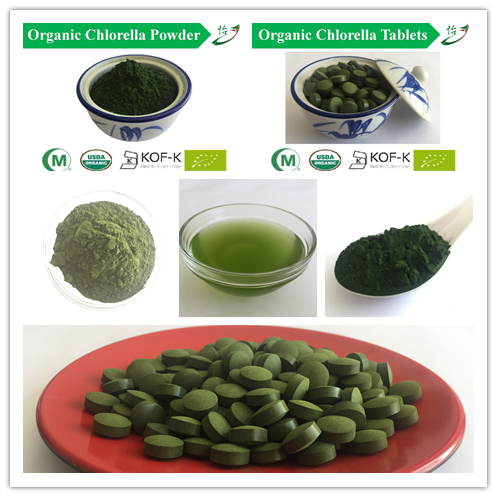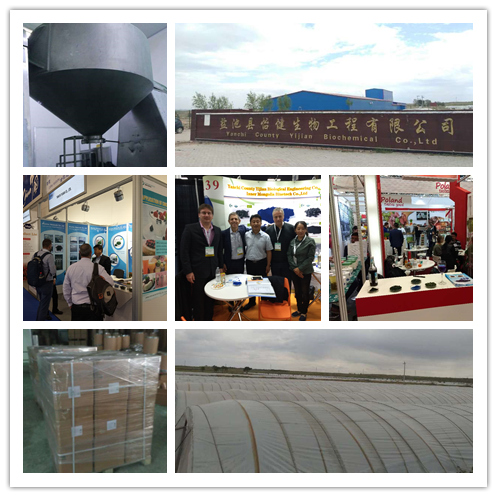This classification summarizes the Organic Chlorella produced by our own factory in northwestern of China .
We have advanced equipment and strict quality control system to ensure the quality and production.
The products under the classification are:
2. Organic Chlorella Tablets .
Various parameter specifications of our product:
Naturland Certified ; CERES certified .
About Company Organic Chlorella Organic Chlorella,Organic Feed Chlorella,Chlorella Organic Feed,Natural Cell Wall Broken Chlorella YANCHI YI JIAN BIOLOGICAL PROJECT CO.,LTD , https://www.spirulina-yj.com
(2) Soil preparation and timely sowing: Apply 3500-75000 kg of mature organic fertilizer per hectare before planting, 1500 kg of ash from plant and tree, 225-300 kg of compound fertilizer, deep plowing after spreading, mixing soil and fertilizer to avoid injury to roots and divergence. root. Do a leveling job and sow at the right time. In general, 525,000 to 750,000 plants are planted per hectare. In soils such as magnesium deficiency, calcium, and boron, multiple compound fertilizers containing elements such as Ca, Mg, and B are also added.
(3) Coinciding with top dressing: After the seedlings emerge, combine the seedlings with the seedlings, timely cultivating, weeding, removing the diseased plants and watering. Carrots mainly rely on basal fertilizers, and generally do not top-dressing fertilizers, so it is not easy to cause chemical fertilizers to contaminate products. If the base fertilizer is insufficient, according to the condition of the seedlings, suitable fertilizer may be applied in an appropriate amount. Decomposed human fecal urine 15000 kg/ha can be applied before ridging and during straightening. 25 to 30 days before harvesting, extra-root dressing was conducted with potassium dihydrogen phosphate 45 kg/ha and water 1875 kg. Boron-deficient soils were sprayed with 0.1% to 0.25% borax or boric acid at seedling stage, rosette stage, and meat enlargement stage. For soils with high nitrogen content, 150 kg/ha of NaCl may be applied to reduce nitrate nitrogen content in carrots. When carrots are sown in the autumn, they should be harvested in time to prevent freezing. The tools used in the harvesting process should be clean, hygienic and non-polluting. Dispensing, transporting and storing shall comply with the provisions of DB1304/049.

EU & NOP standard ; Kosher & Halal Available .
Low heavy metals & Micro Contents , Low & Stable PAH4 Level ,
PAH4 value is less than 10 ppb .Low microorganismsNon-Irradiation ,
Non GMO , Gluten Free , Allergen Free , Pesticides Free .
Own Factory : Manufacture in northwest of China . Legitimacy , Regularity , Cultural .
Own Lab : Quality control and Product development . Strictly , Creativity , Responsibility .

Yanchi County Yijian Biotechnol Co.,Ltd
was founded in Dec 2012 ,
by Mr. Dezhi Zhang ,
the legal representative of the company .
Company registered capital is 10 million RMB .
The main business sectors are culture , processing , internal sales , import and export trade of Organic Spirulina and organic chlorella products .
Yijian is known globally as one of the major suppliers of microalgae products across the world .
Annual production rate is 600 Mt .
Average annual sales income is around 5 million dollar .
Carrot non-polluting fertilization technical specification
(1) Selection of good varieties: The quality of seeds was selected to meet the requirements of GB8079-1987 and the use of genetically modified carrot varieties was rejected. The excellent varieties include Beijing whip stalk red, candle holder, Yantai 5 inch, Xi'an red, Nanjing red, five inch ginseng, and Kuroda five inch. Before the seeds are sown, the seeds are deprived of the bristles. After the disinfection, the seeding volume is larger to preserve the seedlings.